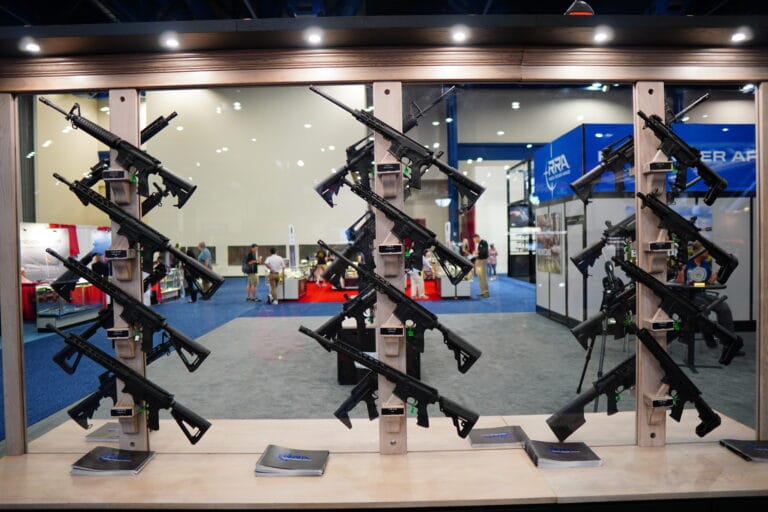How will the decision to support new gun restrictions, or the refusal to do so, in the wake of the Uvalde shooting impact the political future of Republicans?
It’s difficult to say for sure. Some have taken steps to hedge against political backlash as they consider action on gun policy. Of the ten Republican senators that worked to forge a deal on a federal gun package, for instance, four are set to retire at the end of their terms while the other six are not up for re-election this cycle. None of them will have to face voters any time soon.
Republicans that will soon face voters have been noticeably tight-lipped about their position on the package.
The state level may offer a more immediate test for how voters might reward or punish a politician based on gun policy. And nowhere is that dynamic starker than in the Lone Star State itself.
Being the state where the horrific attack at Robb Elementary School took place, many eyes have been on Texas and its incumbent Governor Greg Abbott (R.). Since the attack, Abbott has chosen to eschew calls for new gun control and has instead encouraged more robust enforcement of current gun laws in addition to new school safety protocols.
That puts him in stark contrast with the man who hopes to unseat him this November, perennial candidate Beto O’Rourke. The Democrat made a name for himself during the 2020 Democratic presidential primaries as a strident gun control supporter. His public call for the confiscation of AR-15s was among the most aggressive gun-control stances taken by a national political candidate in at least a generation. It also contributed to the demise of his candidacy.
It comes as no surprise then that in the wake of the Uvalde shooting O’Rourke has seized the moment to reestablish his gun control bona fides and differentiate himself from his opponent.
O’Rourke crashed a press conference with Abbott in the immediate aftermath of the shooting and accused him of being culpable in the attack. He has since reiterated his position on confiscating AR-15s as his preferred response to mass shootings.
In a longtime red state known for valuing gun rights, but one that’s been trending blue to an extent over the last decade, it’s difficult to say how those divergent approaches will play with Texas voters come November. Complicating matters, as with their approach to gun policy, two of the most recent polls on the race offer divergent indicators of how voters are feeling.
A new poll released Monday from BluePrint Polling found Abbott’s lead over O’Rourke has grown to a 19-point advantage among Texas voters. That’s despite the poll being conducted by a Democratic pollster in the weeks immediately following the Uvalde massacre.
However, a new Quinnipiac poll released Wednesday tells a different story. That poll finds that the race has actually tightened between the two candidates, with Abbott now only enjoying a 5-point lead over his Democratic challenger, down from 15 points in another Quinnipiac poll conducted last December.
Adding to the complication, the Quinnipiac poll finds that Texas voters now support stricter gun laws 58 to 38 percent, and 51 percent of voters think stricter gun laws would help decrease the number of mass shootings, up from just 42 percent last June.
This would seem to indicate a burgeoning backlash against Abbott and his approach to gun policy as it pertains to mass shootings, one that could advantage O’Rourke this November. But even that much is not so clear.
The same Quinnipiac poll also shows a plurality think Abbott will do a better job handling gun policy, 47 to 43 percent. It also shows a plurality oppose an assault weapons ban, which certainly calls into question O’Rourke’s strategy of running on not only a ban on AR-15s but their confiscation too.
The dynamics may be a bit murky in terms of which candidate enjoys an advantage among voters, but what’s clear is the issue has the potential to make a real difference. Gun policy was found to be the third-most urgent issue facing Texas voters overall in the Quinnipiac poll, and it was similarly situated among Independent’s most urgent issues.
So, when it comes to the potential for gun policy to affect electoral politics, the action taken at the federal level and its fallout might be hard to discern for a while. Instead, look to Texas this November for the clearest possible test case.







Only Members can view comments. Become a member today to join the conversation.